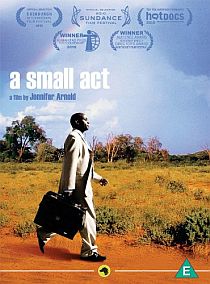


Doc Discussion/ 10

Louise Rosen, who started this Doc Discussion writes: Dear Mikael (Opstrup), Reading the posts is uncomfortable – the humiliation and frustration of the filmmakers, the sense from the CEs/funders of being overwhelmed and likewise frustrated. I feel both sets of experiences – as a consequence of representing filmmakers and being approached by filmmakers to represent them. Everyone’s trying to find their way in a profoundly changed and changing world. Right now it’s futile to speculate on the financial potential, or lack thereof, in digital distribution. In any event, there’s nothing to suggest thus far that the digital world will be a robust source of widespread production funding.
What can be done to improve matters – in the near and long term? We share a framework for considering the issues as the documentary form encompasses a broad range of formats and styles. Doc series, and single docs that fit into existing formatted series on TV are doing quite well these days. But for the sake of discussion here, let’s assume we are focused on single, longform films of an hour or feature length and filmmakers whose goal is to reach as wide an audience as possible.
So, what can filmmakers do? What can funders and CEs do? How can we collectively make a more effective case for the value of documentaries?
Demonstrating the power of docs
Are there data and metrics that can be compiled to make a more compelling case for feature docs – to networks, funders and investors? How can making an anthology strand/home for single docs on a network prove or improve their ratings potential? What can be learned about marketing, promotion and branding by all parties?
Making docs more cost effective/designing new business structures
Are there ways of making production and post-production more cost efficient,
approaches that will help reduce the cost of items such as clearances and insurance? What are new models of sustainability for indie prodcos?
Training
What can filmmakers, network execs and funders learn to do better, particularly in relationship to one another? Leadership skills, communication, talent and project development are among the areas we all need to be better at.
Transparency
The power of shared knowledge – participants can help create “terms of trade” even without official adoption of guidelines.
I want to believe it’s never too late for labor organizing 101 for culture workers (1). But, are we “whistling past the graveyard”? There are now so many aspiring filmmakers, the documentary ecology has been transformed. I’m a Luddite (2) in many respects yet I know there’s little point (and no comfort) in mourning the passing of the old ways. Let’s keep talking about the future.
(1) Means basic lessons (101 is the first year curriculum in any subject) in union-type political organizing. “Culture workers” is a term I first heard from Rudy Buttignol. That’s what we all are, right?
(2) A social movement of textile artisans in England in the early 19th century who tried to destroy the mechanical looms tthey saw were taking away their jobs. Has also come to mean someone who clings to old ways.
Photo: A film from the catalogue of Louise Rosen.
Louise Rosen is a media executive with over 25 years experience in all areas of the international television and film business. She runs an agency specializing in the financing and distribution of documentaries with particular focus on pre-sales and co-productions, and she has been invited to tutor and lecture all over the world.